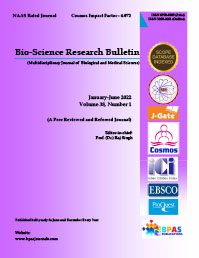Cultural Advantage as a Resistance from Hyperglobalization
DOI:
https://doi.org/10.48165/Keywords:
Culture and Imperialism, Cultural Advantage, Cultural Resistance, Beyond Competitive AdvantageAbstract
Despite the economics jargon on ‘rational choice’, nowadays the entire world has nothing else to choose except to succumb under the spell of magic words of modern economics, i.e. ‘neoliberalism’, ‘financial liberalization’, ‘free market’ (laissez-faire), and ‘globalization’. All of these can be shown to be part of a preconception, called “utility maximization” (cf. Milton Friedmann), i.e. far beyond the ‘neutral’ idea of natural sciences. In Fritjof Capra’s book ‘Turning Point’ (Bantam Books, 1982) these phenomena are summarized as follows: economics thinking have started by assuming that in economics sciences one can achieve the same generality and universality that physicists enjoy in doing Natural Sciences. In other words, economists try through their work to become ‘hard science’ rather than recognizing that in economics the subject of their study is human/people which is far from being predictable, either as individual or as society. As an alternative path way and in accordance with Edward Said’s “Culture and Imperialism”, it has become more obvious that culture is a vehicle of imperialism all over the world through globalization. In this paper, this writer argues that the term of Cultural Advantage which I and Prof. Florentin Smarandache coined back then 2008, can be a postcolonial resistance, i.e. a method which can be used by developing and under-developing countries (especially in Asia) to resist the globalization of culture brought by the First World Countries. In this paper, this writer will discuss why Postcolonialism study matters.
References
Paul Levy (2021). Wetiko : Healing the Mind-Virus That Plagues Our World . NY: Inner Traditions, 2021. Url:
https://www.simonandschuster.com/ books/Wetiko/Paul
Levy/9781644114117
V. Christianto F. Smarandache (2008) Cultural Advantage for Cities: An alternative for developing countries USA: Info Learn Quest, 2008. Also in Amazon, 2008. url: https://www.amazon.com/Cultural
Advantage-Cities- alternative developing/dp/159973060X
Vandana Shiva K. Shiva (2021). Oneness vs. 1 percent. Chelsea Green Publishing. Aug. 2021. url:
https://www.chelseagreen.com/produ ct/oneness-vs- the-1/
V. Christianto F. Smarandache (2 016). Cultural Advantage for Cities Available at SSRN:
https://ssrn.com/abstract=2731556 or
http://dx.doi.org/10.2139/ssrn.2731 556
Bruce Robbins, Mary Louise Pratt, Jonathan Arac, R. Radhakrishnan, Ed- ward Said (1994). Edward Said’s Culture and Imperialism: A Symposium Social Text, No. 40 (autumn 1994), pp.1-24
Eben Barnard (2011). Review essay: Cultural resistance: can such practices ever have a meaningful political impact? Critical social thinking: Policy and Practice, 3, 2011.
Anthropology for 21st century. url: https://www.iianthropology.org/anth 21stcentury.html
V. Christianto, R.I. Chandra, F. Smarandache. NPTRS J, 2021. url: url:
http://journalsttcipanas.ac.id/index. php/NPTRS/article/view/37
